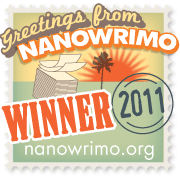Before I went to university I wrote the beginning of about 10 different fantasy stories. Each time I started a new one I kept my favourite elements of the previous attempt and redesigned everything else around them. I never got more than a few chapters in before I had an idea that didn’t quite fit with what I’d written and so I started all over again. Again.
In our first class we were asked to give a reason for why we wanted to do a writing degree. In a desperate attempt to come up with something that didn’t sound completely stupid, I said that I wanted to actually finish writing something instead of starting story after story and then getting distracted by the next one and not finishing anything.
Sometime after that, I honestly have no idea how long, I watched some kind of documentary about J.K. Rowling and she mentioned planning. She had detailed spreadsheets for every chapter, every part of what she wrote had been meticulously planned out beforehand. I then, probably a few years later to be honest, read a blog written by an author whose fantasy epics are the size of telephone directories. He said that he planned almost nothing. 5% planning, 95% making it up as he goes along.
Now, no planning at all wasn’t getting me all that far. But J.K Rowling’s spreadsheets seemed a bit much. So I sat down with my various different worlds and decided where I wanted the story to end. I then very vaguely planned out the story in about ten bullet points. Roughly three years later and by some kind of miracle, I actually finished the story.
That seems to be the kind of planning that works for me, bullet point the major plot points and come up with the bits in between as I go along. It can get a little out of hand though and I once wrote 40,000 words that were completely unnecessary to the story, I’d just taken the character to a place that I found quite interesting and got carried away with it. Only about 10,000 of those words survived.
I think that was one of my major problems in never finishing anything. I’d come up with a new idea for something and get too excited about that to worry about the rest of the story, and with no direction I just wrote until that idea ran out of steam and waited to have another one that would lead in yet another different direction. I find that if I have at least a vague idea of where I want to end up I might meander around a bit in getting there, but I will always get to that point. Eventually.
Weirdly I’ve found that when writing general fiction I need to plan more for the opposite reason; if I don’t know where I’m going I don’t write anything. With fantasy I can write for hours and get no actually story out of it. With general fiction I can stare at a blank screen for hours and maybe hash out one short scene, but I need to know exactly where I’m going and preferably have some kind of road map and Sat Nav if I’m going to get there. Here is where I follow J.K. Rowling’s example and write tables in word so that I know what I need to write for each chapter.
I think that’s partly due to the fact that I just find writing fantasy easier, so all I need is a vague direction and I can write myself there, with probably quite a few added shortcuts on the way. With other writing I worry more about how it’s going to read and if I don’t give myself a clear set of instructions I’ll just stand around at the start wondering which path to take forever.
But now that I know all that I can plan accordingly and I know what kind of preparation I need to do and, hopefully, I’ll even manage to finish more this way!
How about you? Do you plan? Do you have spreadsheets and tables or do you just wing it and see what you end up with afterwards? Do you plan differently for different genres or is it just me that’s weird that way?



